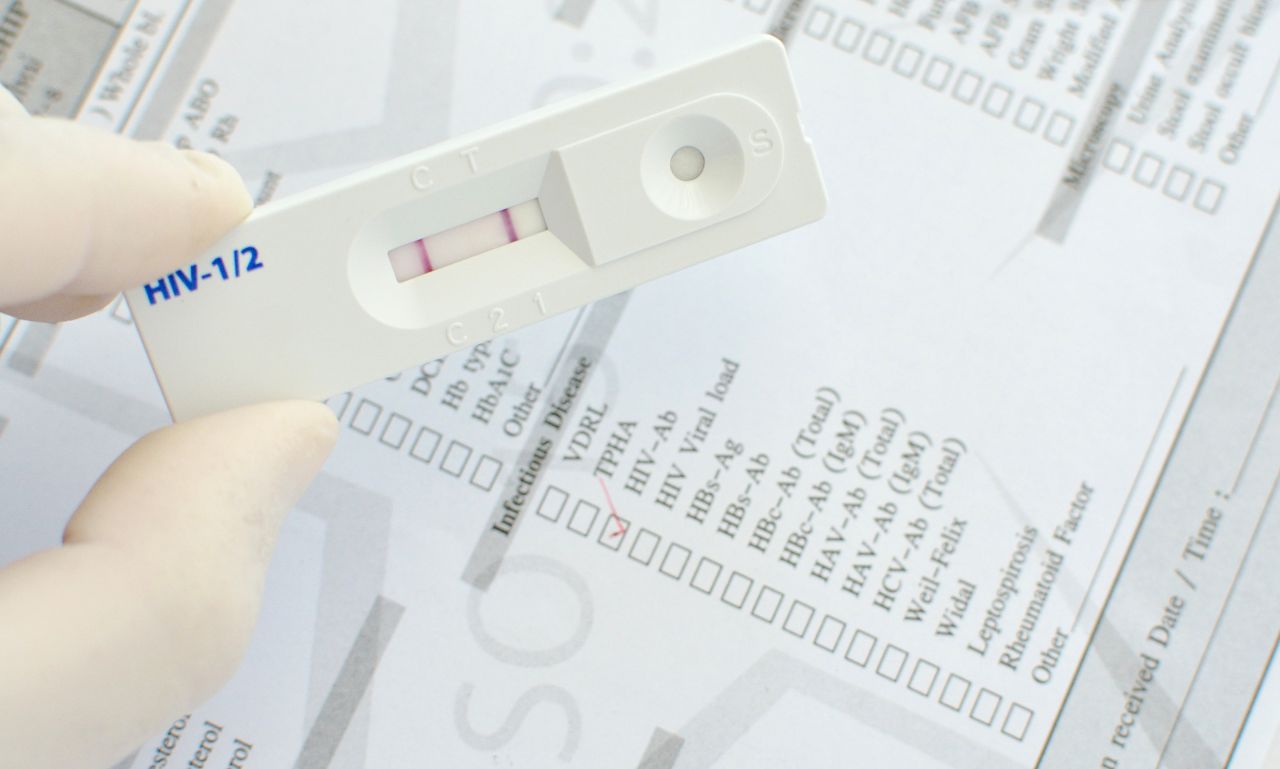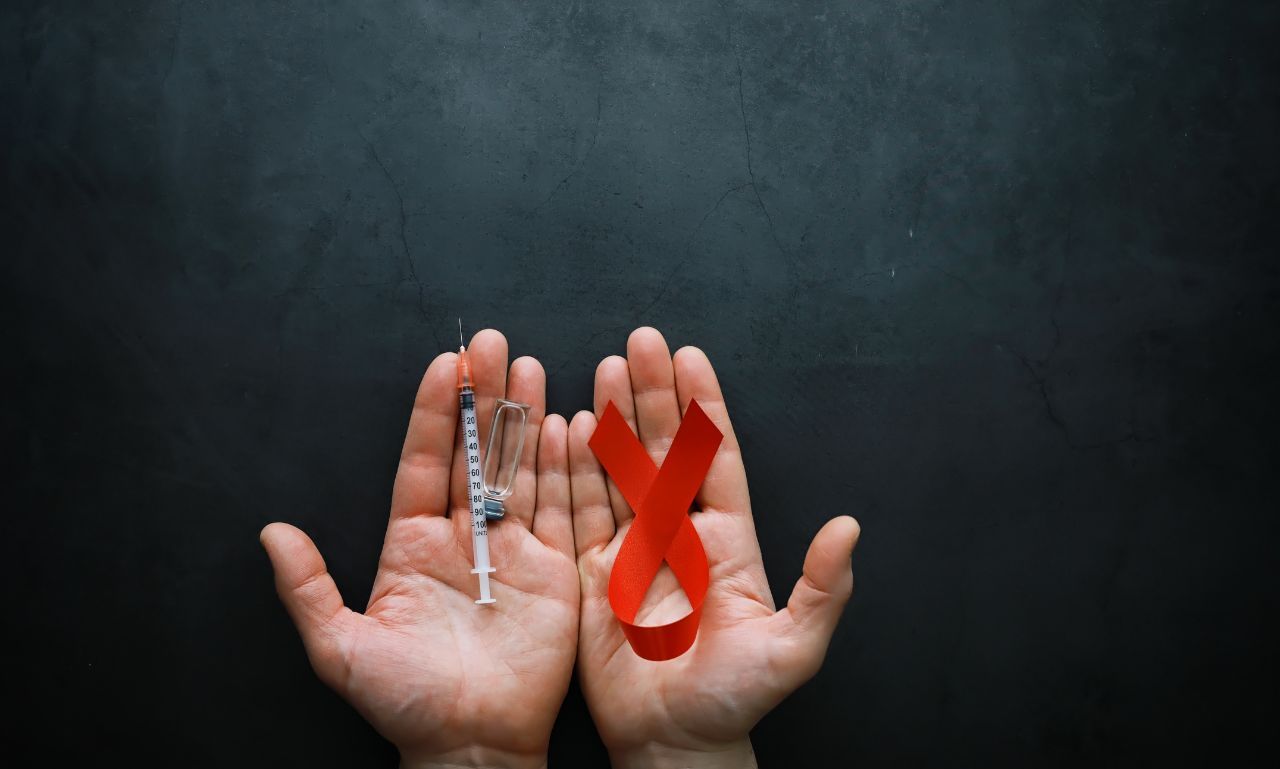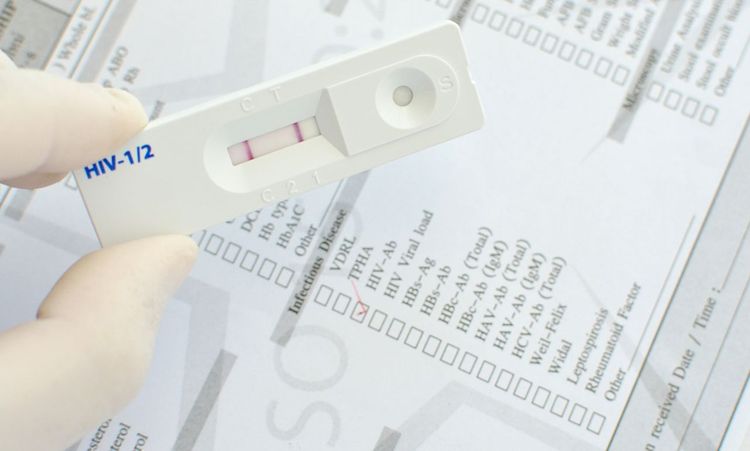Living with someone who is HIV positive can be a journey that comes with both challenges and opportunities for growth, empathy, and love. It requires understanding, compassion, and an informed approach to ensure that both partners or family members have the best quality of life. Whether you're a sexual partner, family member, or friend of someone who is HIV positive, this guide will help you navigate the nuances of care and support in a way that empowers you and your loved one.
In this comprehensive guide, we will explore the practical aspects of living with someone who is HIV positive, including understanding the science behind HIV, building a supportive environment, ensuring proper medical care, and addressing emotional and mental health needs. The goal is to provide practical advice that promotes mutual well-being and helps both parties lead healthier, more fulfilling lives.
Understanding HIV and Its Impact
The first step in living with someone who is HIV positive is understanding what HIV is and how it affects the body. HIV (Human Immunodeficiency Virus) attacks the immune system, specifically targeting CD4 cells, which are white blood cells that play a crucial role in fighting infections. Over time, HIV weakens the immune system, increasing the risk of opportunistic infections and certain cancers. Without effective treatment, HIV can progress to AIDS (Acquired Immunodeficiency Syndrome), which is a more advanced stage of the infection.
However, advancements in treatment, particularly with antiretroviral therapy (ART), have transformed HIV into a manageable long-term condition. People living with HIV who receive proper treatment can lead normal, healthy lives with an average life expectancy comparable to those who are HIV-negative. Understanding the importance of ART and adhering to treatment plans is essential for anyone living with or caring for an HIV-positive person.
Acknowledge and Validate Their Experience

Living with HIV is not just a physical experience; it also involves emotional and psychological challenges. An HIV-positive diagnosis can trigger a wide range of emotions, including fear, sadness, anger, or guilt. Acknowledging these feelings and validating your loved one's experience is crucial for their emotional health.
Creating a safe space for open communication allows the HIV-positive person to express their thoughts and emotions without fear of judgment. This can be done by listening actively, offering reassurance, and showing empathy. Simply being present, offering a non-judgmental ear, and acknowledging their fears and triumphs can be incredibly powerful. Phrases like, "I understand this must be difficult for you" or "I'm here for you no matter what" can provide comfort and reassurance.
Educate Yourself About HIV
One of the most empowering things you can do to support an HIV-positive person is to educate yourself about the virus. Understanding how HIV is transmitted, how it affects the body, and how it is treated can help alleviate any fears or misconceptions you may have. HIV is transmitted through specific bodily fluids such as blood, semen, vaginal fluids, rectal fluids, and breast milk. It is not spread through casual contact like hugging, shaking hands, sharing food, or using the same toilet.
By educating yourself, you can help debunk myths, reduce stigma, and create an environment of acceptance and understanding. Reliable sources of information include the Centers for Disease Control and Prevention (CDC), World Health Organization (WHO), and National Institutes of Health (NIH). Seeking guidance from a healthcare provider is also helpful in staying informed about the latest advances in HIV treatment.
Foster Open Communication
Communication is the foundation of any healthy relationship, and it becomes even more crucial when living with someone who is HIV positive. Honest and open dialogue helps address concerns, fears, and expectations. Create an environment where your loved one feels comfortable discussing their health, treatment, and emotions without fear of judgment or rejection.
It is also important to express your own feelings and concerns. Living with someone who is HIV positive might bring up anxieties for you, and sharing these feelings can help both of you navigate the complexities together. Remember, it’s not just about talking—it’s about listening actively and responding with empathy. If you feel overwhelmed, consider seeking support from a healthcare professional or counselor who can guide you through the emotional aspects of living with an HIV-positive person.
Support Adherence to HIV Treatment
Adherence to antiretroviral therapy is crucial for managing HIV effectively. ART helps suppress the viral load, which means the amount of HIV in the blood becomes undetectable. When the viral load is undetectable, the risk of transmitting HIV to others is effectively zero. Adherence to treatment also prevents the progression of HIV and reduces the risk of opportunistic infections.
As a caregiver or partner, you can support your loved one by encouraging them to take their medication as prescribed and helping them manage any side effects. This could involve setting reminders, accompanying them to medical appointments, or simply offering words of encouragement when they feel overwhelmed. It is also helpful to maintain open communication with your loved one's healthcare team to stay informed about their treatment plans and any changes in their medical care.
Recognize Psychological Impacts and Seek Mental Health Support
Living with HIV can take a psychological toll, leading to anxiety, depression, or feelings of isolation. Recognizing these psychological impacts is vital for providing comprehensive support. Encourage your loved one to seek mental health services if they are struggling with emotional challenges. Access to counseling, support groups, or therapy can provide them with the tools they need to cope with the emotional aspects of living with HIV.
As someone living with or caring for an HIV-positive person, it is also beneficial for you to seek counseling or join a support group. This will help you process your emotions, reduce caregiver stress, and provide the best possible support for your loved one.
Promote a Healthy Lifestyle
A healthy lifestyle plays a critical role in the well-being of someone living with HIV. Encourage your loved one to maintain a balanced diet, exercise regularly, get enough sleep, and avoid recreational drugs or excessive alcohol consumption. Healthy living can help strengthen the immune system and reduce the risk of comorbidities such as cardiovascular disease, kidney disease, and diabetes.
Participate in these activities with your loved one whenever possible. For example, you could go for walks together, cook nutritious meals, or engage in a favorite physical activity. These shared experiences not only promote good health but also strengthen your relationship and improve your overall quality of life.
Addressing Sexual Health and Maintaining Intimacy
Sexual health is an important aspect of any intimate relationship, and it requires open communication and careful consideration when one partner is HIV positive. Using condoms, taking PrEP, and ensuring that the HIV-positive partner adheres to their antiretroviral treatment are key steps to maintaining a safe and healthy sex life.
It is also important to remember that intimacy extends beyond physical sexual activity. Emotional closeness, affection, and spending quality time together are vital components of a healthy relationship. If you have concerns about intimacy or sexual health, seek advice from a healthcare provider who can provide information on how to maintain a fulfilling sexual relationship while minimizing the risk of transmission.
Take Special Precautions to Prevent Transmission
While HIV is not spread through casual contact, it is important to take certain precautions to avoid contact with blood or other bodily fluids that could carry the virus. For example, avoid sharing sharp objects like razors or needles, and consider using latex or disposable gloves if you need to handle any wounds or blood spills.
Safe disposal of items like needles and razors is also important to prevent accidental exposure. Always follow guidelines for the safe disposal of sharps, and clean surfaces that come into contact with blood with soapy water and disinfectants. These measures help protect everyone in the household, including children and other family members.
Understand Legal Protections Against Discrimination
People living with HIV are protected by law from discrimination in many countries. These laws are in place to ensure that HIV-positive individuals are treated fairly in the workplace, healthcare settings, and other areas of public life. Understanding these legal protections is crucial for advocating for your loved one and ensuring that they receive fair treatment.
If your loved one faces discrimination because of their HIV status, there are resources available to help. The Ryan White HIV/AIDS Program provides support and access to health services for HIV-positive individuals, and local health departments often have programs that protect the rights of HIV-positive people. Knowing and understanding these rights will empower your loved one and help them live without fear of unfair treatment.
Foster a Supportive Environment

Creating a supportive environment is essential for the well-being of someone living with HIV. This involves fostering both emotional and practical support. Encourage routines that promote good health, such as adhering to antiretroviral medications, regular physical exercise, and routine medical check-ups. Make sure your home is a space where your loved one feels safe, accepted, and cared for.
Small gestures can make a big difference. Cooking a nutritious meal, going for a walk together, or simply spending time listening to their concerns can contribute to a positive environment. It is also helpful to connect with social service providers who can assist with accessing resources, such as financial support, transportation to medical appointments, or specialized healthcare services.
Engage in Joint Activities and Maintain Normalcy
Maintaining a sense of normalcy is key to promoting emotional health for both the HIV-positive person and their partner or family members. Engaging in joint activities that both of you enjoy—such as cooking, hiking, or watching movies—helps create positive experiences that are not centered on HIV. These shared activities reinforce the idea that HIV is just one aspect of their life and does not define who they are.
Living a normal life also means participating in social activities, staying active in the community, and nurturing relationships with friends and family. An HIV diagnosis should not prevent your loved one from pursuing their interests, hobbies, or goals. Encourage them to stay engaged in activities they love and provide support as they navigate any challenges that arise.
Be Mindful of Social Stigmas
Social stigma remains a significant barrier for people living with HIV. It is important to be mindful of the potential stigma your loved one may face and to actively counteract it. Educate yourself and others about HIV to dispel myths and challenge stereotypes. Be an advocate for your loved one in social situations, and speak up against misinformation and discrimination when you encounter it.
Your support can help challenge stereotypes and create a more inclusive environment for everyone. By standing up for your loved one and promoting awareness, you contribute to reducing the stigma associated with HIV and make it easier for others to live openly and without fear.
Plan for Future Health Needs
Planning for future health needs is an important aspect of living with someone who is HIV positive. This includes discussing potential changes in health, financial planning for medical care, and understanding the progression of HIV if left untreated. Conversations about the future can be difficult, but they are necessary to ensure that both partners feel prepared and secure.
Work with healthcare professionals to develop treatment plans and preventive measures that promote long-term health. Regular check-ups and consultations with a healthcare team will help monitor the progress of the condition and make adjustments to treatment as needed. Knowing what to expect and having a plan in place will provide peace of mind for both of you.
Conclusion
Living with a person who is HIV positive involves understanding, empathy, and proactive care. By educating yourself, fostering open communication, providing emotional and practical support, and prioritizing both partners' mental and physical health, you can create a fulfilling and supportive environment. HIV is a manageable condition, and with the right approach, you can help your loved one live a healthy and happy life, free from stigma and full of love.




